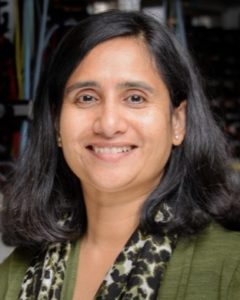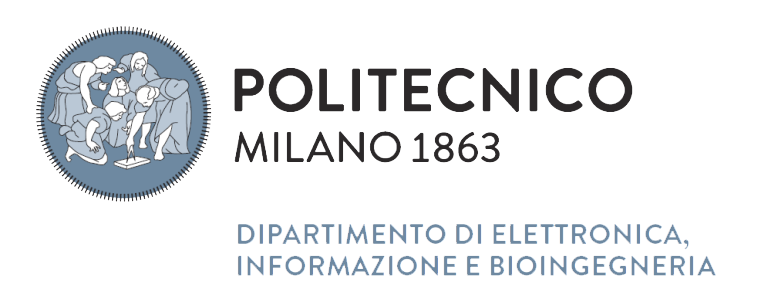Tuesday June 28
Keynote #1 – Network Softwarization Coming of Age: A Retrospective Look
9:30 am – 10:15 am CEST
Walter Cerroni, University of Bologna, Italy
Description
Network Softwarization has become a reality in many production environments and commercial deployments. It represents the convergence point of two evolutionary technology trends that involved, respectively, the computing and communications fields, which were needed to cope with the increasing complexity and vertical specialization of modern network infrastructure management and service provisioning. Such a consolidation is also testified by how Network Softwarization approaches reshaped mobile communication architectures and solutions, being at the heart of the 5G Core Network and enabling some of the most promising potentials for an intelligent 6G ecosystem, where virtualization and programmability will span from the access to the cloud. But how did Network Softwarization reach its current status? What were the capstone events and premises that brought to programmable and softwarized networks as we know them today? This talk represents a chance to have a retrospective look at how Network Softwarization evolved in the past decade, to discuss about what promises were maintained and what were not, and to try and understand what directions it will take in the future. Will the evolution ever become a revolution?
Biography
 Walter Cerroni is an Associate Professor of communication networks at the University of Bologna, Italy. Previously, he was a Junior Researcher with Alcatel, Dallas, Texas, USA, a Research Associate at the National Inter-University Consortium for Telecommunications (CNIT), Italy an Assistant Professor at the University of Bologna, Italy, and a visiting Assistant Professor at the School of Information Sciences, University of Pittsburgh, Pennsylvania, USA. His recent research interests include software-defined networking, network function virtualization, edge/fog/cloud computing, service function chaining, intent-based virtualized infrastructure management. He co-authored more than 140 articles published in the most renowned international journals, magazines and conference proceedings. He serves as Lead Series Editor for the IEEE Communications Magazine Series on Network Softwarization and Management, and as Associate Editor for the IEEE Communications Letters. He served as Technical Program Co-Chair for IEEE NetSoft 2020, as well as for other IEEE-sponsored international workshops and conferences. He will serve as NetSoft Steering Committee Member for the 2023-2025 term.
Walter Cerroni is an Associate Professor of communication networks at the University of Bologna, Italy. Previously, he was a Junior Researcher with Alcatel, Dallas, Texas, USA, a Research Associate at the National Inter-University Consortium for Telecommunications (CNIT), Italy an Assistant Professor at the University of Bologna, Italy, and a visiting Assistant Professor at the School of Information Sciences, University of Pittsburgh, Pennsylvania, USA. His recent research interests include software-defined networking, network function virtualization, edge/fog/cloud computing, service function chaining, intent-based virtualized infrastructure management. He co-authored more than 140 articles published in the most renowned international journals, magazines and conference proceedings. He serves as Lead Series Editor for the IEEE Communications Magazine Series on Network Softwarization and Management, and as Associate Editor for the IEEE Communications Letters. He served as Technical Program Co-Chair for IEEE NetSoft 2020, as well as for other IEEE-sponsored international workshops and conferences. He will serve as NetSoft Steering Committee Member for the 2023-2025 term.
Keynote #2 – New Foundations for Networks
2:45 pm – 3:30 pm CEST
Nate Foster, Cornell University & Intel, US
Description
Software-defined networking (SDN) is often explained as a shift of who is in control. SDN empowers network owners to implement new functionality directly, rather than having to wait for equipment vendors and standards bodies. But there is another important – and often overlooked – aspect of SDN: it offers an exciting opportunity to develop new foundations for networking based on solid mathematical principles. This talk will discuss opportunities and challenges in the area of network verification, ranging from the design of expressive modeling languages, to approaches for specifying correct behavior, to scalable property-checking tools.
Biography
 Nate Foster is a Professor of Computer Science at Cornell University and a Platform Architect at Intel. The goal of his research is to develop languages and tools that make it easy for programmers to build secure and reliable systems. His current work focuses on the design and implementation of languages for programming software-defined networks. He received a PhD in Computer Science from the University of Pennsylvania, an MPhil in History and Philosophy of Science from Cambridge University, and a BA in Computer Science from Williams College. His awards include a Sloan Research Fellowship, an NSF CAREER Award, the SIGCOMM Rising Star Award, and paper awards from SIGCOMM, CoNEXT, NSDI, POPL, and ICFP.
Nate Foster is a Professor of Computer Science at Cornell University and a Platform Architect at Intel. The goal of his research is to develop languages and tools that make it easy for programmers to build secure and reliable systems. His current work focuses on the design and implementation of languages for programming software-defined networks. He received a PhD in Computer Science from the University of Pennsylvania, an MPhil in History and Philosophy of Science from Cambridge University, and a BA in Computer Science from Williams College. His awards include a Sloan Research Fellowship, an NSF CAREER Award, the SIGCOMM Rising Star Award, and paper awards from SIGCOMM, CoNEXT, NSDI, POPL, and ICFP.
Wednesday June 29
Keynote #3 – Towards Smart and Sustainable Distributed Edge Architectures
8:45 am – 9:30 am CEST
Francesc Guim, Intel, Spain
Description
Edge is not anymore a single location, single platform or single workload. Cloud is not anymore a standalone set of data centers that act as separate entities. Today’s deployments are trending to architectures that are highly distributed leveraging cloud native paradigms to decompose use cases in microservices that can be placed in multiple places depending on the compute and network needs. Edge to cloud is becoming a reality and a need. Having highly distributed architectures allows to have end to end systems that can mutate and adapt to the different service loads and provide the required compute and network bandwidth and latencies that use cases require. However, this comes with multiple tolls to pay, for example: (1) more complex systems to manage; (2) need more complex service life cycle management policies; (3) potentially more power inefficient end to end architectures. The talk is going to focus on providing the end to end perspective of the edge to cloud system architecture and aspects that we need to cover in order to design end to end systems that can scale but that sustainable at the same time.
Biography
 Francesc is a Principal Engineer & Chief Edge System Architect at NEX/OCTO. He is focused on designing end to end Edge system architectures that comprehend all the various SW/HW Intel technologies. His technical focus extends to cutting edge and future technologies such as Artificial Intelligence, Blockchain, Security, Data Privacy and Data Mining. Francesc has over 400 Filed and Granted application patents covering these areas. His most recent patent filings involve the utilization of processing resources and memory in edge environments.
Francesc is a Principal Engineer & Chief Edge System Architect at NEX/OCTO. He is focused on designing end to end Edge system architectures that comprehend all the various SW/HW Intel technologies. His technical focus extends to cutting edge and future technologies such as Artificial Intelligence, Blockchain, Security, Data Privacy and Data Mining. Francesc has over 400 Filed and Granted application patents covering these areas. His most recent patent filings involve the utilization of processing resources and memory in edge environments.
Keynote #4 – Blockchain-based Distributed Marketplaces for Telecommunication Services and Beyond
9:30 am – 10:15 am CEST
Kurt Tutschku, Blekinge Institute of Technology, Sweden
Description
Digital marketplaces are increasingly applied to activate and dynamize the demand, supply, and development of digital goods, applications, or services. Telecommunications systems are built on services for delivering their functionality. Hence, the concept a marketplace constitutes an appealing opportunity for enabling improved ways to engage old and new stakeholders with these systems. Centralized marketplaces, however, might not be efficient, unsustainable, or even not permitted due to the distributed nature of the service generation and provisioning. In order to eliminate the need for a centralized marketplace, a blockchain-based decentralized concept was lately introduced. The presentation will discuss the foundations, system concepts, and capabilities of blockchain-based decentralized marketplaces for network services. Furthermore, it outlines the extension of the decentralized concept beyond networks and towards the secure trading of different electronic goods.
Biography
 Kurt is a professor for telecommunication systems at the Blekinge Institute of Technology (BTH). He is leading the team on SDS (Secure and Distributed Systems) at BTH’s Department of Computer Science(DIDA). Prior to BTH, Kurt was holding from 2008 to 2013 the Chair of Future Communication at the University of Vienna (endowed by A1 Telekom Austria). From February 2008 to August 2008, he worked at the Network Virtualization Lab of the National Institute for Information and Communication Technology (NICT) in Tokyo, Japan. Between 1999 to 2008, Kurt was an assistant professor at the Department of Distributed Systems of the University of Würzburg, Germany where he was heading the departments group on “New Network Architectures, Peer-to-Peer (P2P) Systems and Self-Organization”. Kurt has received this Ph.D. in Computer Science in 1999 and this Habilitation degree in 2008; both were awarded by the University of Würzburg, Germany. Kurt’s research interests are gathered around the topics of the architectures and the operation of future distributed systems, softwarized networks, and Cloud systems (incl. NFV and SDN-based networks). Kurt has specialized within these areas on orchestration, control, and service management mechanisms (incl. service marketplaces, Blockchain algorithms) and their performance. Lately, Kurt has turned to the issues of security, confidentiality, digital sovereignty, and data privacy in service chains and in edge- and Cloud-based systems. Kurt is leading multiple funded academic and industry collaborations in this area. Kurt and his team contributed to various Future Internet and network virtualization testbed projects, incl. GENI (US), Akari (Japan), or G-Lab (Germany). Kurt has also collaborated with the German Federal Office for Information Security (Bundesamt für Sicherheit in der informationstechnik), was a member of the steering committee of the European Future Internet Assembly and has actively contributing to the ETSI Industry Specification Group (ISG) on Network Functions Virtualization (NFV). He is currently for BTH member of ETSI’s ISG on the Security of AI (SAI). Kurt serves since 2017 as the General Chair of the IEEE Conference on NFV-SDN. He has advised more than 50 MSc thesis and is currently supervising three Phd students.
Kurt is a professor for telecommunication systems at the Blekinge Institute of Technology (BTH). He is leading the team on SDS (Secure and Distributed Systems) at BTH’s Department of Computer Science(DIDA). Prior to BTH, Kurt was holding from 2008 to 2013 the Chair of Future Communication at the University of Vienna (endowed by A1 Telekom Austria). From February 2008 to August 2008, he worked at the Network Virtualization Lab of the National Institute for Information and Communication Technology (NICT) in Tokyo, Japan. Between 1999 to 2008, Kurt was an assistant professor at the Department of Distributed Systems of the University of Würzburg, Germany where he was heading the departments group on “New Network Architectures, Peer-to-Peer (P2P) Systems and Self-Organization”. Kurt has received this Ph.D. in Computer Science in 1999 and this Habilitation degree in 2008; both were awarded by the University of Würzburg, Germany. Kurt’s research interests are gathered around the topics of the architectures and the operation of future distributed systems, softwarized networks, and Cloud systems (incl. NFV and SDN-based networks). Kurt has specialized within these areas on orchestration, control, and service management mechanisms (incl. service marketplaces, Blockchain algorithms) and their performance. Lately, Kurt has turned to the issues of security, confidentiality, digital sovereignty, and data privacy in service chains and in edge- and Cloud-based systems. Kurt is leading multiple funded academic and industry collaborations in this area. Kurt and his team contributed to various Future Internet and network virtualization testbed projects, incl. GENI (US), Akari (Japan), or G-Lab (Germany). Kurt has also collaborated with the German Federal Office for Information Security (Bundesamt für Sicherheit in der informationstechnik), was a member of the steering committee of the European Future Internet Assembly and has actively contributing to the ETSI Industry Specification Group (ISG) on Network Functions Virtualization (NFV). He is currently for BTH member of ETSI’s ISG on the Security of AI (SAI). Kurt serves since 2017 as the General Chair of the IEEE Conference on NFV-SDN. He has advised more than 50 MSc thesis and is currently supervising three Phd students.
Keynote #5 – Networking Challenges for Edge-to-Cloud Infrastructure
5:00 pm – 5:45 pm CEST
Sujata Banerjee, VMware Research, US
Description
The field of networking, and in particular, software-based networking, has seen a rapid pace of innovation driven by the needs of a new generation of cloud services and applications, and has accelerated the blurring between compute and communication infrastructures. As exciting as these advances have been, some fundamental technical and operational challenges still remain and are getting more critical in order to support advanced real time applications in distributed edge-to-cloud infrastructures. Not only do these emerging applications and the hardware and software infrastructure supporting them require very stringent end-to-end performance, they also require new levels of reliability, privacy, security, trust, sustainability and manageability. This talk will focus on these challenges and present new research approaches and problems, including in the context of trends such as data-driven networking.
Biography
 Sujata Banerjee leads the VMware Research Group (VRG) whose mission is to create novel technologies and unique differentiation for VMware’s technology portfolio, and advance the state of the field through external impact on the research community. Sujata’s research has spanned software defined networking, network function virtualization, network energy efficiency and measurement. She served as the technical program co-chair of the ACM SIGCOMM 2020, USENIX NSDI 2018 and ACM SOSR 2017 conferences. She is a member of the Computing Community Consortium (CCC) Council of the Computing Research Association (CRA) and is on the scientific advisory committee of the FABRIC programmable research infrastructure. In 2020, she served in the AI working group of the FCC’s Technology Advisory Council and was the vice-chair of ACM SIGCOMM (2019-2021). She has over 40 US patents, is a recipient of the U.S. National Science Foundation (NSF) CAREER award in networking research and is a Fellow of the IEEE. Prior to VMware, she was a director and distinguished technologist at Hewlett Packard Enterprise Labs, leading research on enterprise, service provider and datacenter networks. Before her industrial research career, she held a tenured Associate Professor position at the University of Pittsburgh. Sujata received the Ph.D. degree from the University of Southern California (USC) and the B.Tech. and M.Tech. degrees from the Indian Institute of Technology (IIT) Bombay. https://research.vmware.com/
Sujata Banerjee leads the VMware Research Group (VRG) whose mission is to create novel technologies and unique differentiation for VMware’s technology portfolio, and advance the state of the field through external impact on the research community. Sujata’s research has spanned software defined networking, network function virtualization, network energy efficiency and measurement. She served as the technical program co-chair of the ACM SIGCOMM 2020, USENIX NSDI 2018 and ACM SOSR 2017 conferences. She is a member of the Computing Community Consortium (CCC) Council of the Computing Research Association (CRA) and is on the scientific advisory committee of the FABRIC programmable research infrastructure. In 2020, she served in the AI working group of the FCC’s Technology Advisory Council and was the vice-chair of ACM SIGCOMM (2019-2021). She has over 40 US patents, is a recipient of the U.S. National Science Foundation (NSF) CAREER award in networking research and is a Fellow of the IEEE. Prior to VMware, she was a director and distinguished technologist at Hewlett Packard Enterprise Labs, leading research on enterprise, service provider and datacenter networks. Before her industrial research career, she held a tenured Associate Professor position at the University of Pittsburgh. Sujata received the Ph.D. degree from the University of Southern California (USC) and the B.Tech. and M.Tech. degrees from the Indian Institute of Technology (IIT) Bombay. https://research.vmware.com/
Thursday June 30
Keynote #6 – Steps towards AI-Native networking
9:30 am – 10:15 am CEST
Dario Rossi, Huawei Paris Research Center, France
Description
The blending of network connectivity and advanced computing capabilities, both in the cloud as well as at the network edge, paves the way to the advent of self-driving networks, thanks to a comprehensive and data-rich view of the underlying network components. In this talk we first cover achievements of the current AI-assisted cloud-native architecture, which already empowers operators to deploy networks able to automatically adapt according to high-level goals, and next discuss challenges to move to, as well as benefits coming from, a fully AI-native network architecture.
Biograp hy
hy
Dario Rossi is a Senior Expert in Huawei, currently serving as DataCom AI CTO and Director of the DataCom Lab at the Huawei Paris Research Center. He holds an HDR from UPMC, and PhD and MSc degrees from Politecnico di Torino. Before joining Huawei in 2018, he held Full Professor positions at Telecom Paris and Ecole Polytechnique and was holder of Cisco’s Chair NewNet@Paris. He chaired and participated in the steering and technical program committees of 50+ conferences (incl. IEEE INFOCOM, ACM CoNEXT and ACM SIGCOMM) and in the editorial board of 5 journals (incl. several IEEE Transactions). He has coauthored 15 patents and over 200 papers in leading conferences and journals, that attracted over 7000 citations, received 9 best paper awards, a Google Faculty Research Award (2015) and an IRTF Applied Network Research Prize (2016). He is a Senior Member of IEEE and ACM.








